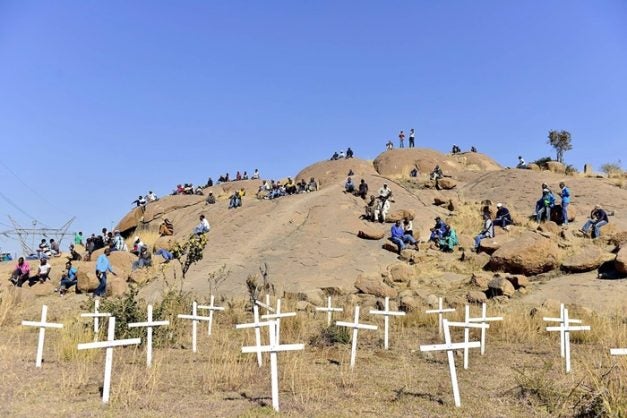On Thursday, the Socio-Economic Rights Institute of SA (Seri), representing the families of the dead mineworkers, said that the case around the compensation of the miners was far from being settled.
According to Nomzamo Zondo, its director of litigation, two disputes were delaying the finalisation of the families’ claim from the state.
She said this was due to the fact that the government had not agreed to fulfil demands made by the respective families, which include an apology and the exact amount of damages to be paid.
”We are still far apart by at least R1.5 million,” Zondo said, referring to the proposed settlement amount. The government is offering R500000 a family, while Seri is demanding R2m.
Seri has since included constitutional damages, which were awarded to the families of the 144 victims of the Life Esidimeni tragedy, in its assessment of the claim of the deceased mineworkers’ relatives.
Retired Deputy Chief Justice Dikgang Moseneke ordered that the government pay the families of each of the Life Esidimeni victims R1million saying this was appropriate relief for them.
With regard to the Marikana tragedy, Zondo said the claims for damages stood at R450000 for each of the mineworkers’ widows.
While the battle for compensation drags on, at the Nkaneng informal settlement, a stone’s throw from the koppie on which striking mineworkers gathered for about a week before the massacre, life continued as normal.
Former Lonmin mineworker Zongamele Makhanda’s worried family persuaded him to take waya waya (voluntary retrenchment in this case) three years after the massacre.
Makhanda, who is from Mthatha in the Eastern Cape, has been unemployed since taking the waya waya in 2015, a decision he now regrets.
“I am now actively looking for a job on the mine,” said the 39-year-old father of three.
He said his prospects of getting a job have improved because Lonmin has been taken over by Sibanye Gold, which he described as Froneman, referring to its chief executive, Neal Froneman.
Like his former colleagues, Makhanda will today join the commemoration of the massacre organised by the Association of Mineworkers and Construction Union, which was at the forefront of the 2012 strike, and which has held the gathering annually since the massacre.
For Ndodomzi Mbuzeni, a mineworker who works for a contractor hired by Lonmin, the conditions at Nkaneng have not improved despite promises by the company and the government after the massacre.
Several civil society groups this week protested outside the North West High Court, sitting in Mogwase, at the murder trial of former North West deputy provincial commissioner, Major-General William Mpembe,who was in charge of police operations in the days leading up to the massacre.
Seri, the Marikana Support Campaign, Right2Protest and Right2Know say the mineworkers and their families have yet to see real justice. Mpembe and seven other officers are the only ones to stand trial for some of the killings, which preceded August 16, 2012.
He, Gideon van Zyl, Dingaan Madoda and Oupa Pule are facing charges of contravening the Commissions Act, the Independent Police Investigative Directorate Act and defeating the ends of justice in relation to the death of mineworker Van Wyk Sagalala in police custody.
Mpembe, now head of security at Tharisa mine, is also charged with the murder of mineworkers Semi Jokanisi and Thembelakhe Mati, warrant officer Tsietsi Monene, and Sello Lepaaku. They are also accused of the murder of mineworker Phumzile Sokhanyile.
He is charged with Johannes Vermaak, Nkosana Mguye, Masilo Mogale, Katlego Sekgweleya and Khazamola Makhubela.
Their trial is set down until next Friday.
Political Bureau



